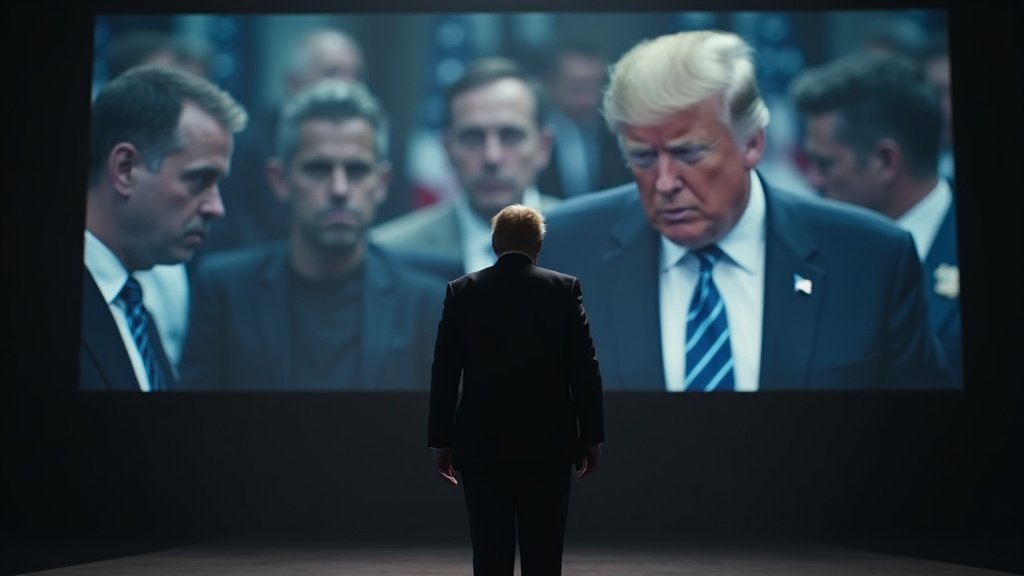In a dramatic escalation of political rhetoric, the Trump Sedition Accusation against six Democratic lawmakers has ignited significant controversy. The former President Donald Trump accused these lawmakers of “seditious behavior” and suggested their actions are “punishable by DEATH!” The fiery accusations, made via his Truth Social platform, followed the release of a video by the lawmakers urging U.S. military personnel to uphold the Constitution and refuse “illegal orders.” This news is rapidly trending across political circles, with the Trump Sedition Accusation at its core.
The Democratic Lawmakers’ Video and Trump’s Scathing Response to the Trump Sedition Accusation
The video, released earlier this week, featured Democratic Representatives Elissa Slotkin (Michigan), Mark Kelly (Arizona), Jason Crow (Colorado), Chris Deluzio (Pennsylvania), Maggie Goodlander (New Hampshire), and Chrissy Houlahan (Pennsylvania). All six lawmakers are veterans or have backgrounds in military or intelligence service. In the 90-second clip, they addressed active service members, stating, “Our laws are clear: You can refuse illegal orders, you must refuse illegal orders. No one has to carry out orders that violate the law or our Constitution.” They also emphasized that threats to the Constitution are present “right here at home.” These Trump sedition remarks were a direct response to this
President Trump responded with a series of posts labeling their actions as “SEDITIOUS BEHAVIOR AT THE HIGHEST LEVEL” and calling the lawmakers “TRAITORS.” He suggested they should be “ARRESTED AND PUT ON TRIAL,” and in a starker post, declared their behavior was “punishable by DEATH!” Trump also amplified messages from supporters, including one that stated, “HANG THEM GEORGE WASHINGTON WOULD!!” This amplified reaction further solidified the Trump Sedition Accusation.
Understanding ‘Sedition’ and Legal Ramifications of the Trump Sedition Accusation
Under U.S. law, seditious conspiracy is defined as a plot by two or more people to overthrow, destroy by force, or oppose the U.S. government, or to prevent, hinder, or delay by force the execution of any law. While distinct from treason, it is considered a serious federal crime. Penalties can include hefty fines and imprisonment for up to 20 years. For military personnel, the Uniform Code of Military Justice includes provisions for sedition, with possible penalties that can extend to death, though such executions are exceedingly rare, with the last occurring in 1961. The seditious conspiracy law is central to the debate surrounding the Trump Sedition Accusation.
Legal experts note that criticizing government policy, even sharply, does not constitute sedition. The core of seditious conspiracy typically involves an agreement to take forceful action against governmental authority. The nuances of this law are critical when examining the Trump Sedition Accusation.
Outrage and Calls for Condemnation Following the Trump Sedition Accusation
The former president’s remarks immediately ignited widespread outrage among Democrats. House Democratic leaders Hakeem Jeffries, Katherine Clark, and Pete Aguilar issued a joint statement demanding Trump “immediately delete these unhinged social media posts and recant his violent rhetoric before he gets someone killed.” Senator Chuck Schumer echoed these sentiments on the Senate floor, calling Trump’s posts “disgusting and dangerous death threats” and warning that the language “makes political violence more likely.” The political violence concerns were heightened by the Trump Sedition Accusation.
Senator Chris Murphy also criticized the president’s rhetoric, stating that it was “extraordinary” and posed a threat to lawmakers’ safety. The lawmakers featured in the video released their own statement, asserting, “That oath lasts a lifetime, and we intend to keep it. No threat, intimidation, or call for violence will deter us from that sacred obligation. What’s most telling is that the President considers it punishable by death for us to restate the law.” This statement directly addressed the gravity of the Trump Sedition Accusation.
Some Republican leaders offered criticism of the Democratic lawmakers video. House Speaker Mike Johnson called the video “wildly inappropriate” but also suggested Trump was merely “defining a crime.” At a White House press briefing, Press Secretary Karoline Leavitt stated Trump was not calling for executions but argued the lawmakers’ message was “very dangerous” and potentially “punishable by law.” This offered a different perspective on the Trump Sedition Accusation.
Broader Implications and Political Climate Amidst Trump Sedition Accusation
The incident highlights the ongoing concerns surrounding political rhetoric controversy and its potential to incite violence. The lawmakers’ video touched upon themes of military obedience and the duty to refuse military unlawful orders, a principle enshrined in military law. The timing of the video and Trump’s reaction come amid broader political tensions and past instances where Trump has called for legal action or imprisonment of political adversaries, including his Trump death penalty comments. This trending story underscores the volatile nature of contemporary political discourse and its potential impact on democratic norms and the integrity of military adherence to the law, all framed by the significant Trump Sedition Accusation during these election year tensions.
As this news develops now, the debate over the boundaries of political speech and the consequences of inflammatory rhetoric continues to dominate headlines, with many calling for a firm line to be drawn against threats of violence directed at elected officials. The implications of such strong accusations and counter-accusations will likely reverberate through the political landscape, particularly in the context of the Trump Sedition Accusation.





